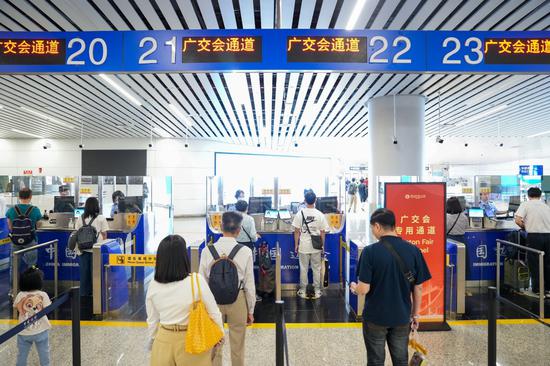
Share this Story : Ottawa looks to 'strengthen' vacant unit tax program with graduated tax rate Copy Link Email X Reddit Pinterest LinkedIn Tumblr Breadcrumb Trail Links News Local News Ottawa looks to 'strengthen' vacant unit tax program with graduated tax rate After completing 2023 appeals and audit phases, 3,672 Ottawa units, or 1.1 per cent, were identified as vacant — a much higher number than expected. Get the latest from Joanne Laucius straight to your inbox Sign Up Author of the article: Joanne Laucius Published Nov 06, 2024 • Last updated 1 minute ago • 4 minute read Join the conversation You can save this article by registering for free here .
Or sign-in if you have an account. The Vacant Unit Tax produced $12.6 million in revenue for the City of Ottawa in 2023.
The program cost $2.3 million to run, leaving net proceeds of $10.3 million, which goes towards affordable housing initiatives.
Photo by Jean Levac / Postmedia News Article content Ottawa’s unpopular vacant unit tax generated $12.6 million in its first year, but the city believes a graduated tax rate will generate up to $4 million in additional revenue. About half the properties charged the vacant unit tax (VUT) in 2023 remained vacant in 2024, indicating resistance to the measures in place, said a report represented Wednesday to the city’s joint finance and corporate services and planning and housing committee.
Advertisement 2 Story continues below This advertisement has not loaded yet, but your article continues below. THIS CONTENT IS RESERVED FOR SUBSCRIBERS ONLY Subscribe now to read the latest news in your city and across Canada. Exclusive articles from Elizabeth Payne, David Pugliese, Andrew Duffy, Bruce Deachman and others.
Plus, food reviews and event listings in the weekly newsletter, Ottawa, Out of Office. Unlimited online access to Ottawa Citizen and 15 news sites with one account. Ottawa Citizen ePaper, an electronic replica of the print edition to view on any device, share and comment on.
Daily puzzles, including the New York Times Crossword. Support local journalism. SUBSCRIBE TO UNLOCK MORE ARTICLES Subscribe now to read the latest news in your city and across Canada.
Exclusive articles from Elizabeth Payne, David Pugliese, Andrew Duffy, Bruce Deachman and others. Plus, food reviews and event listings in the weekly newsletter, Ottawa, Out of Office. Unlimited online access to Ottawa Citizen and 15 news sites with one account.
Ottawa Citizen ePaper, an electronic replica of the print edition to view on any device, share and comment on. Daily puzzles, including the New York Times Crossword. Support local journalism.
REGISTER / SIGN IN TO UNLOCK MORE ARTICLES Create an account or sign in to continue with your reading experience. Access articles from across Canada with one account. Share your thoughts and join the conversation in the comments.
Enjoy additional articles per month. Get email updates from your favourite authors. THIS ARTICLE IS FREE TO READ REGISTER TO UNLOCK.
Create an account or sign in to continue with your reading experience. Access articles from across Canada with one account Share your thoughts and join the conversation in the comments Enjoy additional articles per month Get email updates from your favourite authors Sign In or Create an Account Email Address Continue or View more offers If you are a Home delivery print subscriber, unlimited online access is included in your subscription. Activate your Online Access Now Article content Originally, properties that have been declared vacant or whose owners have not completed declarations are charged one per cent of the current value assessments of those properties.
If the plan is approved by council, properties that have consecutive vacancies will be charged at an increased rate of one per cent for each additional year to a maximum of five per cent of assessed residential value. A vacant unit tax (VUT) motion was passed in 2022, requiring all residential property owners to register the status of their properties annually. A residential unit is considered vacant if it has been unoccupied for more than 184 days during the previous calendar year.
The goal is to encourage homeowners to maintain, occupy or rent properties, increasing supply as the city grapples with a housing shortage. The city made a commitment to the Province of Ontario to “strengthen” the VUT program as a condition of the province’s $543-million new deal for Ottawa . There are exemptions for a property owner, including if a property is for sale, if it’s subject to a court or government order, if the owner has died or is in care, if it’s under construction or renovation, or if it’s a cottage rental or a newly built property listed for sale.
Evening Update The Ottawa Citizen’s best journalism, delivered directly to your inbox by 7 p.m. on weekdays.
There was an error, please provide a valid email address. Sign Up By signing up you consent to receive the above newsletter from Postmedia Network Inc. Thanks for signing up! A welcome email is on its way.
If you don't see it, please check your junk folder. The next issue of Evening Update will soon be in your inbox. We encountered an issue signing you up.
Please try again Article content Advertisement 3 Story continues below This advertisement has not loaded yet, but your article continues below. Article content However, the program also created some unanticipated examples of properties that failed to get exemptions, including abandoned and uninhabitable farmhouses . The joint committees approved a number of other changes to the VUT program on Wednesday, including a motion from Capital Ward Coun.
Shawn Menard to ask the province to extend VUT taxation power to the multi-residential property class. New exemptions will include abandoned or repurposed century farm structures, units that have become uninhabitable due to hazardous conditions or from disasters and secondary properties periodically occupied when the owners or family members receive medical treatment, plus there will be an exemption for small landlords who need additional time to complete cosmetic renovations in which permits may not be required. In that case, the exemption would apply only after a unit becomes vacant and where the property is returned to occupied within 12 months after the renovations begin.
Some councillors observed that residents in their wards had been inadvertently embroiled in a costly VUT net. Advertisement 4 Story continues below This advertisement has not loaded yet, but your article continues below. Article content Barrhaven East Coun.
Wilson Lo said one couple in his ward had a basement unit and had a new tenant who then postponed occupancy because his contract in another city was extended. That pushed the landlords over the six-month unoccupied mark, triggering a VUT charge. Bay Ward Coun.
Theresa Kavanagh said a property owner in her ward who had approval to replace a house with 21 units was charged the VUT while waiting for a demolition permit. Chief financial officer Cyril Rogers said the city did look at those kinds of cases. However, if a developer is going through with a site plan application with the city, the unit can remain occupied during the process.
“We’ve seen lots of units in pristine condition that continue to remain vacant because the developer is going through a site plan approval process that potentially could take several years,” he said. Mayor Mark Sutcliffe said he always had concerns and reservations about the VUT on principle. “However, I think staff have made a lot of effort to improve the dynamics around it and address some of the concerns that were raised,” he said.
Advertisement 5 Story continues below This advertisement has not loaded yet, but your article continues below. Article content “To me, it’s still an imperfect solution. But we’re dealing with imperfect circumstances where our goal is to put more housing back on the market.
The goal is to raise money for affordable housing as well. And, if it’s able to do those things, I can live with it for the foreseeable future.” After completing 2023 appeals and audit phases, 3,672 Ottawa units, or 1.
1 per cent, were identified as vacant — a much higher number than expected — the report said. When the VUT was first debated, city staff predicted a vacancy rate between 0.5 and 0.
7 per cent. This was the first time in Ottawa that the city had been able to measure untenable vacancy, the report said. “The final data for the first year shows that Ottawa’s vacancy issue is worse than anticipated with vacancy levels similar to cities facing significant housing issues, such as Vancouver and Toronto,” it said.
The program produced $12.6 million in revenue, including $10.8 million in taxes, plus $1.
8 million in audit revenue. In audits, city staff review select declarations submitted by property owners and then verify the accuracy of the property owner’s declaration. Advertisement 6 Story continues below This advertisement has not loaded yet, but your article continues below.
Article content The audit program has been successful in identifying vacant units that were not declared as vacant through the declaration process, yielding that $1.8 million in additional revenue. About 6,500 properties were selected for audits.
The report recommends that audits continue. The city spent $2.3 million on VUT program costs such as staffing and computer equipment, leaving net proceeds of $10.
3 million, which goes towards affordable housing initiatives. “The first full cycle has also allowed staff to recognize the true scope of the problem and understand why units are vacant,” the report said. As expected, there were a high number of appeals: 3,357 in the first year, or 55 per cent of properties charged VUT.
Our website is your destination for up-to-the-minute news, so make sure to bookmark our homepage and sign up for our newsletters so we can keep you informed. Recommended from Editorial Grinding away: Two additional partial LRT shutdowns needed for maintenance work More money for police and transit cops, but premier leaves Ottawa hanging on transit funding Article content Share this article in your social network Share this Story : Ottawa looks to 'strengthen' vacant unit tax program with graduated tax rate Copy Link Email X Reddit Pinterest LinkedIn Tumblr Comments You must be logged in to join the discussion or read more comments. Create an Account Sign in Join the Conversation Postmedia is committed to maintaining a lively but civil forum for discussion.
Please keep comments relevant and respectful. Comments may take up to an hour to appear on the site. You will receive an email if there is a reply to your comment, an update to a thread you follow or if a user you follow comments.
Visit our Community Guidelines for more information. Trending Bread recall: Pieces of metal discovered in breads sold in Ontario, Quebec, Newfoundland and Labrador Local News How 150-year-old technology keeps Ottawa's water flowing Local News Suspect sought by Ottawa police for credit-card theft at shopping centre Local News Ottawa looks to 'strengthen' vacant unit tax program with graduated tax rate Local News Crown says Hells Angels recruit, grow-op owner was strangled, stabbed Local News Read Next Latest National Stories Featured Local Savings.














